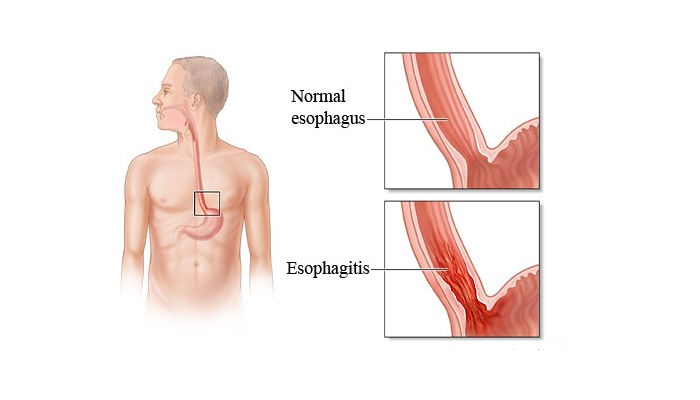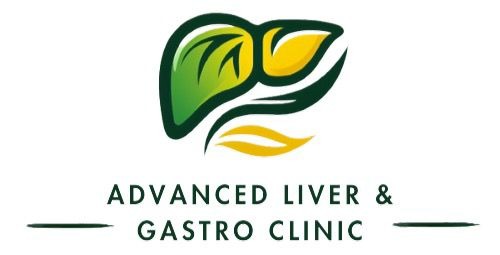What is Esophagitis?
Esophagitis is an inflammation (swelling) of the lining of the esophagus, the tube that connects the throat to the stomach. If it is not treated, esophagitis can become very uncomfortable, causing difficulty in swallowing, and ulcers or scarring of the esophagus. Barrett’s esophagus, a complication of acid reflux, is a risk factor for cancer of the esophagus. The causes of esophagitis usually respond to treatment; however, some causes, such as acid reflux, may require long-term treatment. While many cases of esophagitis respond well to medications and lifestyle changes, chronic conditions like acid reflux (GERD) may require long-term management or advanced treatment.
Consult Dr. Ujwal Zambare, best Gastroenterologist in Wakad, Pune, for expert diagnosis and treatment.

What Causes Esophagitis?
Esophagitis is an irritation of the esophagus caused by any of the following:
- A backflow of acid fluid from the stomach to the esophagus (GERD)
- Vomiting
- Medications such as aspirin and anti-inflammatories
- Viruses, fungi, bacteria, or diseases that weaken the immune system
Risk Factors
Factors that increase the risk of stomach cancer include:
- Gastroesophageal reflux disease
- Obesity
- A diet high in salty and smoked foods
- A diet low in fruits and vegetables
- Family history of stomach cancer
- Infection with Helicobacter pylori
- Long-term stomach inflammation (gastritis)
- Smoking
- Stomach polyps
What are the Symptoms of Esophagitis?
- Difficult and/or painful swallowing
- Heartburn
- Acid regurgitation (bringing food back up to the mouth from the stomach)
How is Esophagitis Treated?
Treatment for esophagitis depends on its cause. While medications that block acid production may be recommended, other medications may be prescribed for cases of esophagitis that are caused by infection. While you are being treated for esophagitis, you can take the following steps to help limit discomfort:
- Avoid spicy foods such as those with pepper, chili powder, curry and nutmeg.
- Avoid acidic foods and beverages such as tomatoes, oranges, grapefruits and their juices. Instead, try nectars and imitation fruit drinks with vitamin C.
- Include more soft foods such as applesauce, cooked cereals, mashed potatoes, custards, puddings and high-protein shakes in your diet.
- Take small bites and chew your food thoroughly.
- Avoid alcohol and tobacco.
Prevention
- Maintain a healthy weight. If you’re overweight or obese, talk to your doctor about strategies to help you lose weight. Aim for a slow and steady weight loss of 1 or 2 pounds a week.
- Choose a diet full of fruits and vegetables. Try to incorporate more fruits and vegetables into your diet each day. Choose a wide variety of colorful fruits and vegetables.
- Reduce the amount of salty and smoked foods you eat. Protect your stomach by limiting these foods.
- Stop smoking. If you smoke, quit. If you don’t smoke, don’t start. Smoking increases your risk of stomach cancer, as well as many other types of cancer. Quitting smoking can be very difficult, so ask your doctor for help.
